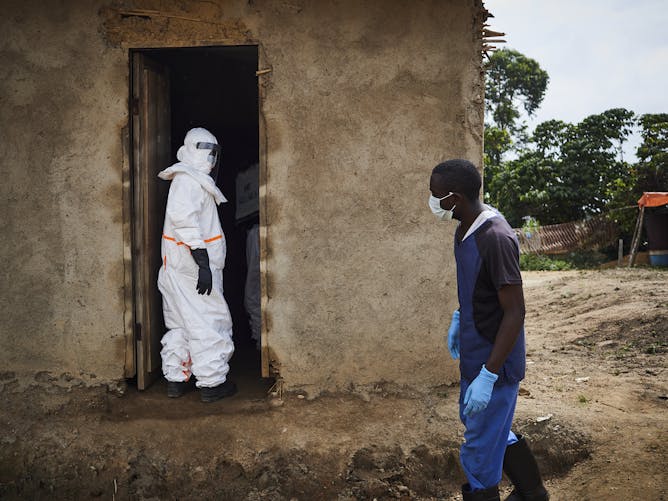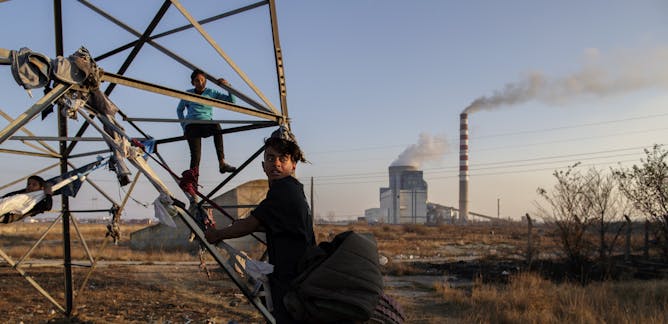|
A sure way to annoy someone with strongly held left-wing views is to compare them to someone with strongly held right-wing views. The same, of course, applies in reverse. But new findings suggest people at the two ends of the political spectrum could have more in common than they realise. While their views may differ radically, their cognitive profiles are similar. This research builds on work to suggest that a certain type of mind lies behind dogmatic opinions. And as one of the study's authors, Leor Zmigrod, suggests, understanding this cognitive common ground could help us build bridges in these divisive times.
The ongoing Ebola outbreak in the Democratic Republic of the Congo is raging on. But there's another massive threat to people's health in the country: a measles outbreak that's left more than 3000 people dead. Jeremy Rossman and Matthew Badham explore this far less publicised outbreak.
|

EPA/Justin Lane
Leor Zmigrod, University of Cambridge
A particular type of mind could be more susceptible to political partisanship, on either side of the traditionally defined political spectrum.
|

A health team begins to disinfect a clinic in Ngongolio, Beni, DRC.
Hugh Kinsella Cunningham/EPA
Jeremy Rossman, University of Kent; Matthew Badham, University of Kent
Two deadly viruses are ravaging the DRC. Why are we only hearing about one of them?
|
Environment + Energy
|

Bill Hare, Potsdam Institute for Climate Impact Research
Ahead of the UN climate summit, we take stock of the world's best and worst performers on climate action - including some surprise success stories.
| |

Mark New, University of Cape Town
More and more evidence has accumulated which shows that changes in global and regional climate over the last 50 years are almost entirely due to human influence.
|
|
|
Health + Medicine
|

Solomon Kibret, University of California, Irvine
Water is crucial to the spread of malaria because mosquitoes breed and lay their eggs in or near bodies of water.
| |

Ana Santos Rutschman, Saint Louis University
Anti-vaccine info online might have foreign roots and political aims.
|
|
|
En español
|

Carmen Álvarez-Mayo, University of York
¿Por qué algunos sonidos nos resultan agradables, mientras que otros provocan asco? Aprender un nuevo idioma puede ayudarnos a descubrirlo.
| |

Ana Hurtado
El uso excesivo e inadecuado de los antibióticos, tanto en medicina humana como veterinaria, favorece la aparición y diseminación de bacterias resistentes.
|
|
|